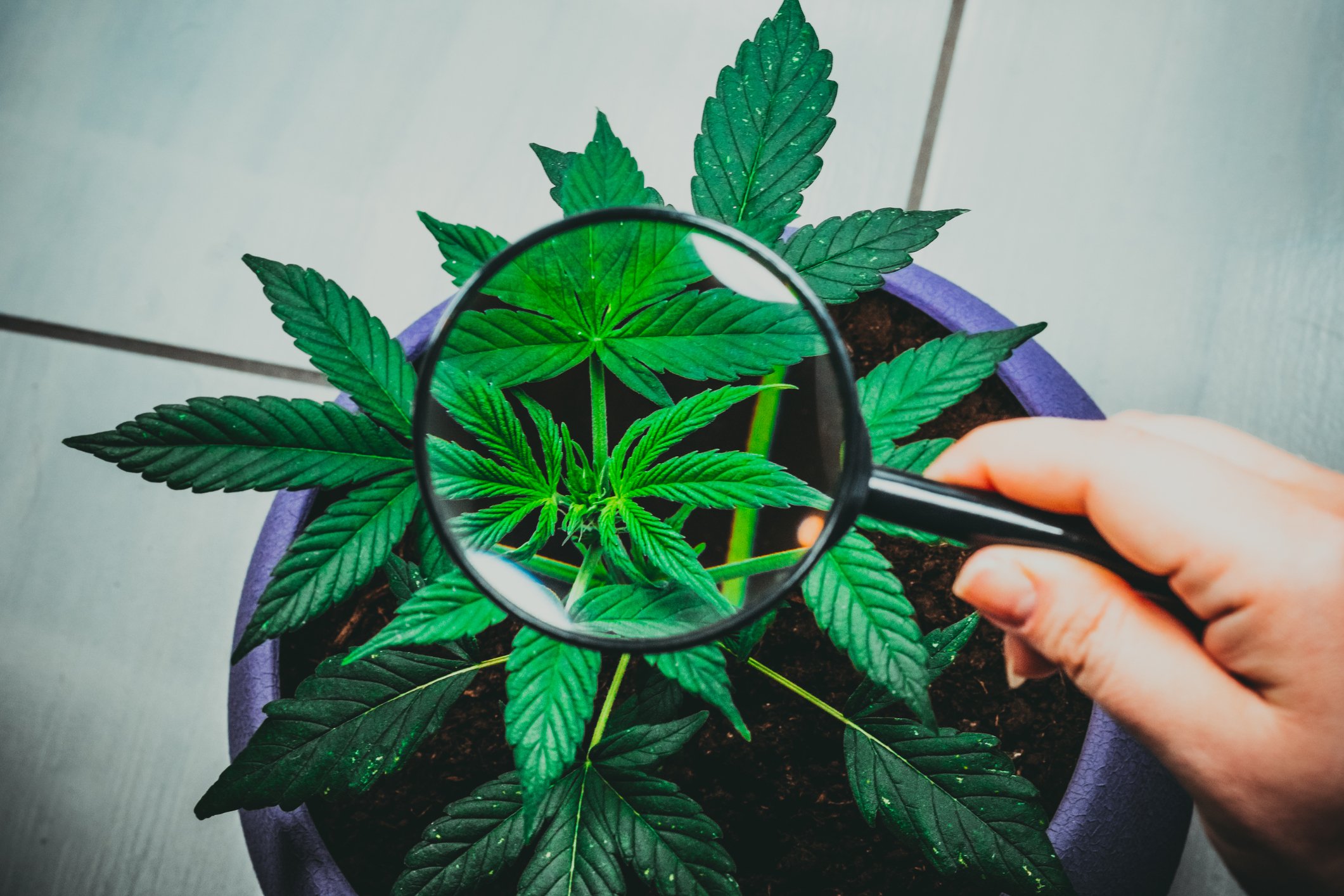Over the trailing year, there's arguably been no better-performing industry than marijuana and marijuana stocks. A majority of pot stocks have moved significantly higher over the past year, with a quick glance back in June showing that the average marijuana stock was up by better than 300% over the trailing year at that time.
Despite strong growth, volatility remains high
The most fundamentally sound reason for this bullishness derives from the growth in legal weed sales. ArcView, which is one of the leading cannabis research firms, found that legal weed sales grew in North America by 34% in 2016 to $6.9 billion. Moving forward, it sees a compound annual growth rate of 26% through 2021, which should lead to a nearly $22 billion market. It's certainly not out of the question that this could happen, either, with Mexico legalizing medical cannabis in June, Canada currently debating the legalization of recreational cannabis by July 2018, and more and more states legalizing weed in some form within the United States.

Image source: Getty Images.
Underlying this incredible growth is also a marked shift in the way Americans think about pot. Prior to California becoming the first state to legalize medical pot in 1996, just a quarter of the population was in favor of marijuana being legal for adult use across the U.S. As of Oct. 2016, an all-time record high 60% of respondents want to see it legal across the country. With favorability improving, the pressure on lawmakers to push through scheduling changes for cannabis is growing.
But, of course, therein lies the rub: marijuana is still an illegal substance at the federal level. This bifurcation in legality between states and the federal government creates a lot of murkiness with regard to the future of the legal pot industry, and it also leads to a ton of volatility in marijuana stocks.
In fact, one pot stock, Insys Therapeutics (INSY +0.00%), has seen its share price fall in eight consecutive trading sessions, through Friday, Sept. 22, 2017. Should this decline be chalked up to pot-stock industry volatility, or is there something deeper than investors should be concerned with? Let's have a look.

Image source: Getty Images.
Subsys' subpar performance sacks Insys
Though shareholders would much prefer Insys' recent weakness be tied to long-term outlook murkiness for legal marijuana, its issues are primarily tied to the underperformance of Subsys, a sublingual synthetic opioid approved by the Food and Drug Administration (FDA) for the treatment breakthrough cancer pain.
Back in 2015, Insys and its lead drug, which has nothing to do with cannabis or cannabinoids derived from the cannabis plant, could do no wrong. Sales of the drug totaled nearly $331 million, up from $222 million in the previous year, and Insys reported almost $98 million in full-year EBITDA (earnings before interest, taxes, depreciation, and amortization). Then the wheels fell off the wagon. Allegations and lawsuits streamed in suggesting that up to 80% of Subsys sales were for off-label indications, and that its marketing team was purposely angling sales at these off-label indications. With increased regulatory scrutiny, sales of Subsys have since been halved from their peak, and Insys has been pushed from delivering healthy quarterly profits to notable losses each quarter.
What's next for Subsys? That's the problem: no one really knows. The company could be facing a slap on the wrist, a potentially hefty fine, or perhaps sales restrictions. There's also questions as to where Subsys' sales find a bottom and level off. We just don't know, and that's a big reason why Insys' stock continues to drift lower.

Image source: Getty Images.
Syndros, your Insys' only hope
However, Insys Therapeutics' PR gaffe isn't necessarily a death sentence for the company's stock. In August, the company launched its long-awaited oral dronabinbol solution (essentially a synthetic version of tetrahydrocannabinol (THC)) known as Syndros as a treatment for chemotherapy-induced nausea and vomiting (CINV) and anorexia associated with AIDS. With peak sales potential of around $300 million, according to some Wall Street pundits, it could easily wind up replacing Subsys' lost sales.
The launch of Syndros was a long time coming for Insys given that it was actually approved by the FDA in July 2016. You're reading that correctly – it took 13 months from approval to bring the product to market. The issue is that as a synthetic version of THC it had to be scheduled by the U.S. Drug Enforcement Agency (DEA). The DEA didn't complete its scheduling until earlier this year, and the FDA didn't OK Syndros' marketing label until May. Being associated as a "marijuana" drug slowed the drugs' launch down to a crawl.
In the interim, Insys' hopes are very much reliant on a strong launch of Syndros. Not only will the company need to properly price the product so it sells, but its marketing team will need to compete against a host of established products in the CINV space. In other words, success is far from a guarantee.

Image source: Getty Images.
To buy or not to buy, that is the question
However, if Insys does succeed, investors could be getting one heck of a bargain. Usually, drug developers are valued at around three times the peak sales of their lead drug, or higher, depending on growth metrics and portfolio diversity. Between Syndros and Subsys, $400 million to perhaps $450 million in combined annual sales by say 2022 or 2023 isn't out of the question. Right now, though, the company is valued at just $640 million, implying it may have the opportunity to double in value.
Make no mistake about it, Insys is riskier than your average investment. We don't know what penalties the company could incur from Subsys, and we also aren't sure how well the launch of Syndros will go in a very crowded indication. But if things go even modestly right for Insys, there could be significant value to be had here for investors. It's a marijuana stock that's certainly worth keeping your eyes on.






